Business Law Case Study: Analysis of the Starbucks Arrest Incident
VerifiedAdded on 2022/08/15
|5
|701
|13
Case Study
AI Summary
This case study analyzes the legal ramifications of the Starbucks arrest incident, focusing on the actions of the police and the application of business law principles. The assignment examines whether the arrest of the black men was justified, considering relevant legal precedents such as Terry v. Ohio and United States v. Brignoni-Ponce. It also explores the role of racial profiling and the potential for discrimination. The analysis applies these legal principles to the scenario, concluding that the actions of the police were not justified. Furthermore, the assignment discusses how Starbucks CEO Kevin Johnson utilized the company's shared values to address the situation, such as the introduction of the “Use of Third Place Policy.” The assignment concludes by referencing key legal cases and providing a comprehensive understanding of the legal and ethical dimensions of the Starbucks incident.
1 out of 5
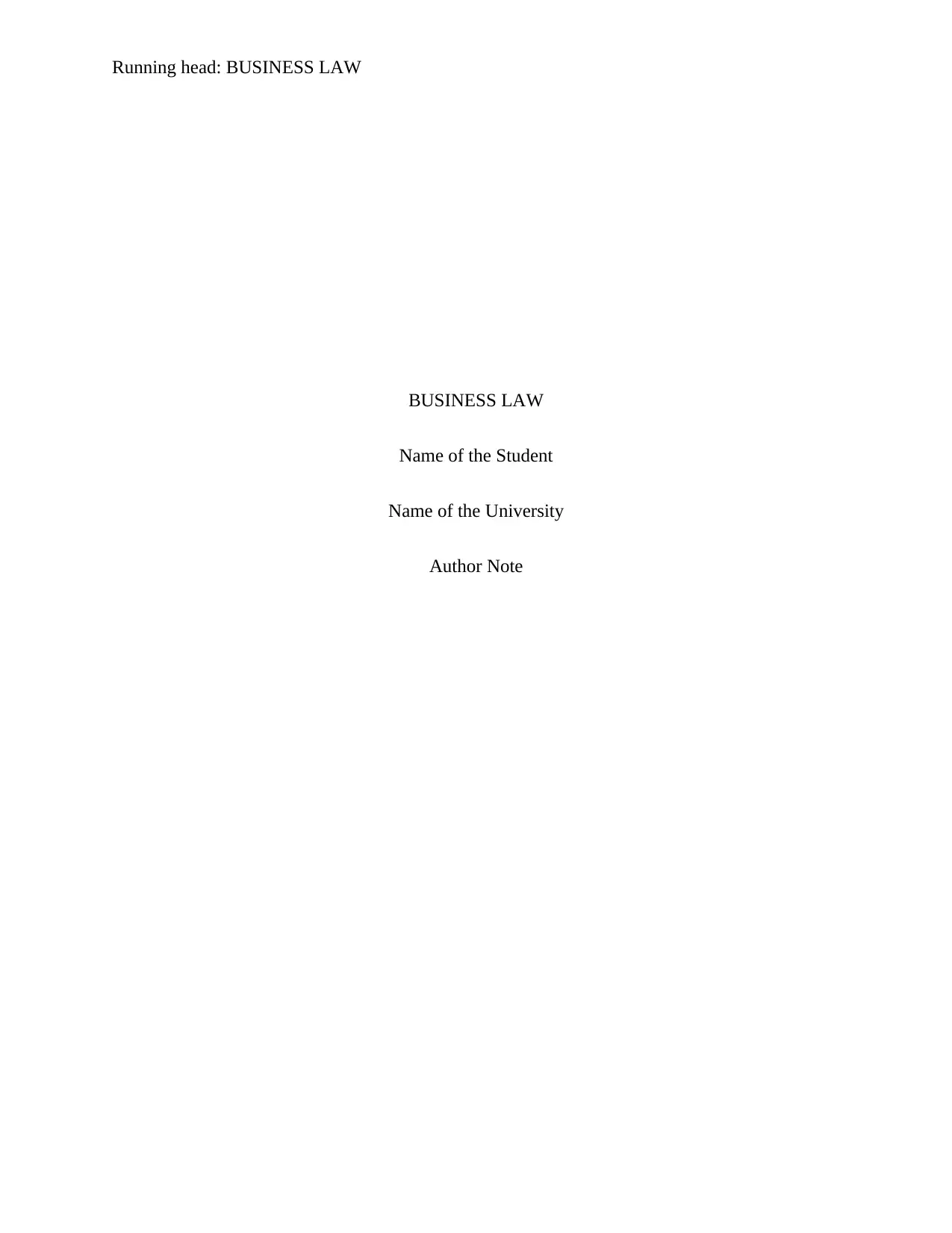
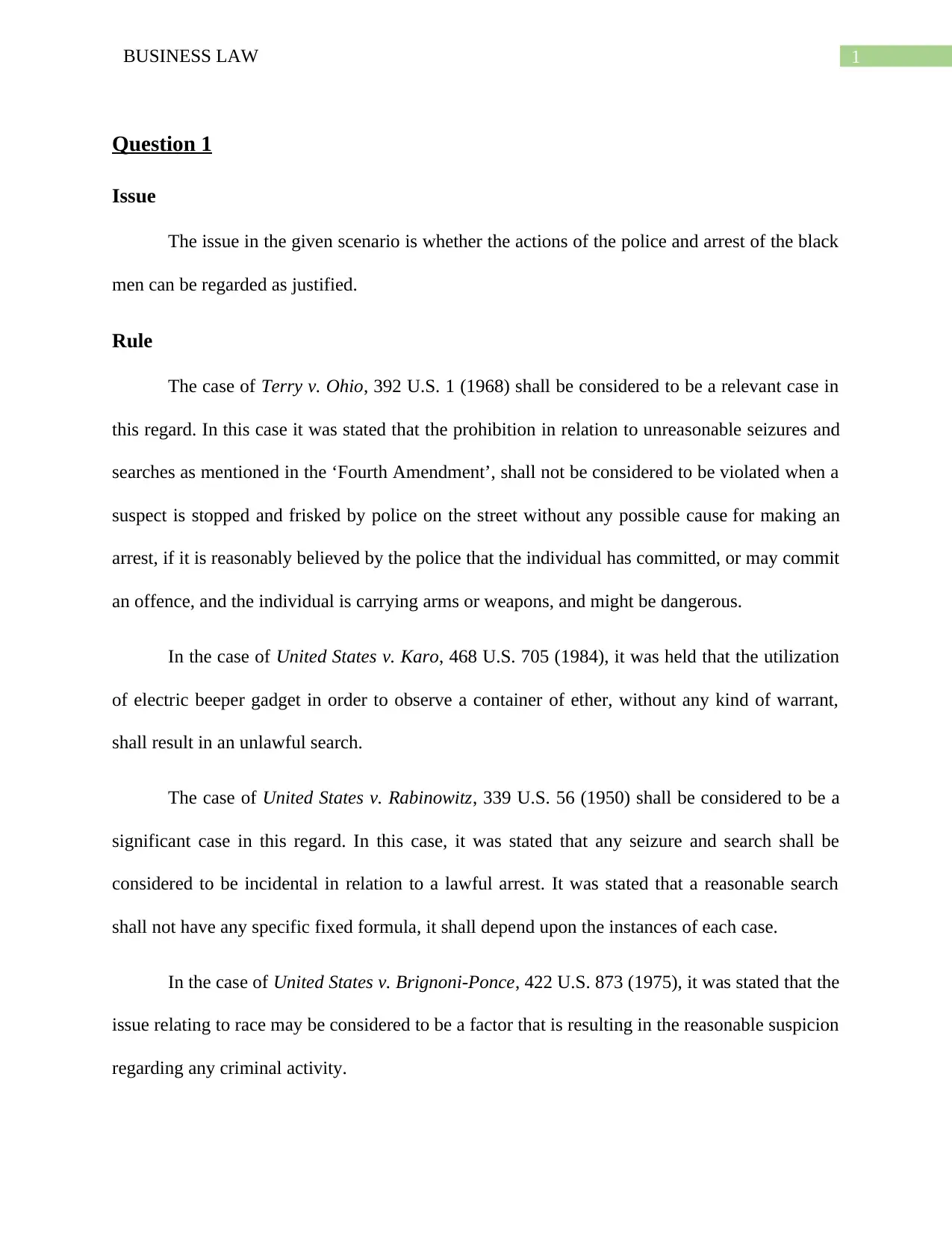
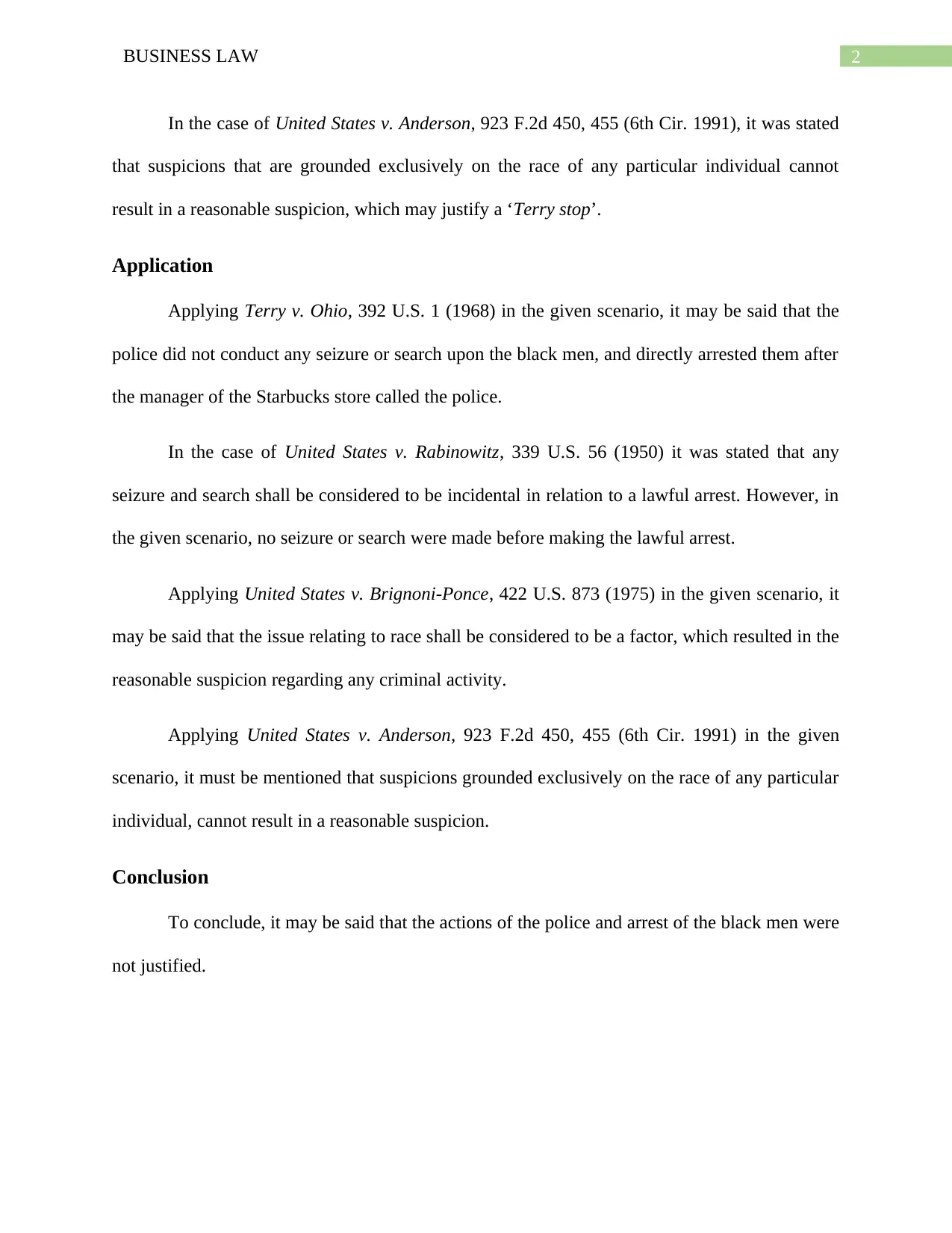

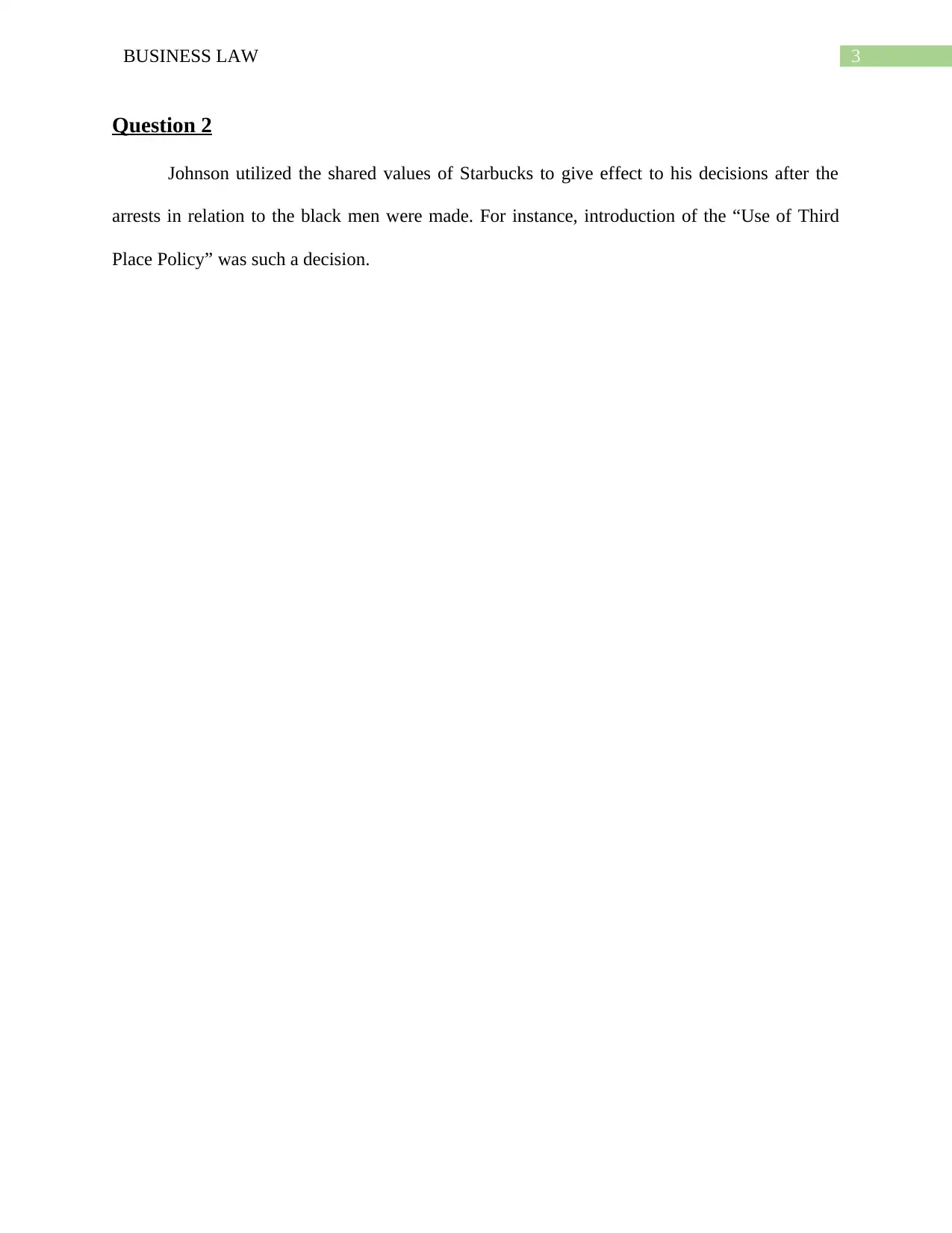
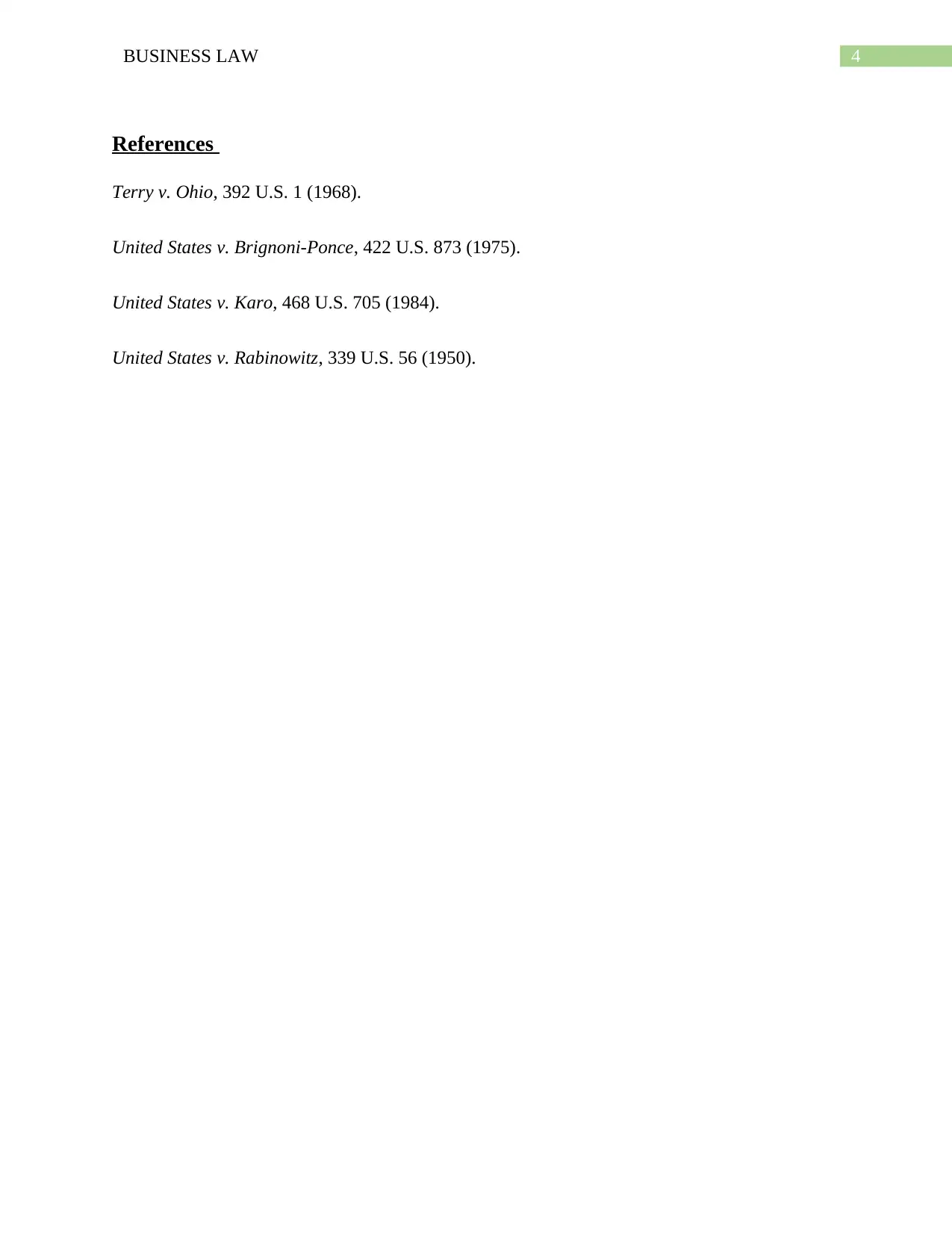




![[object Object]](/_next/static/media/star-bottom.7253800d.svg)